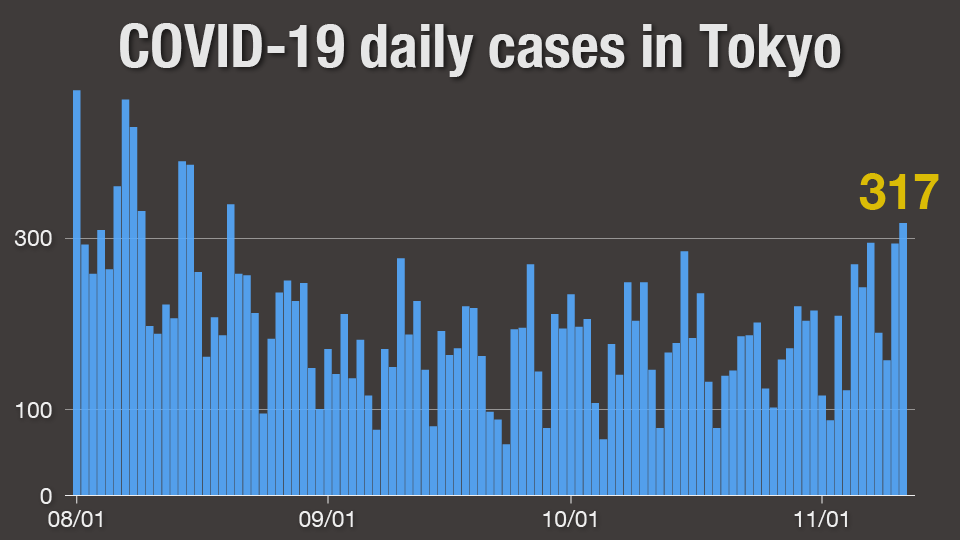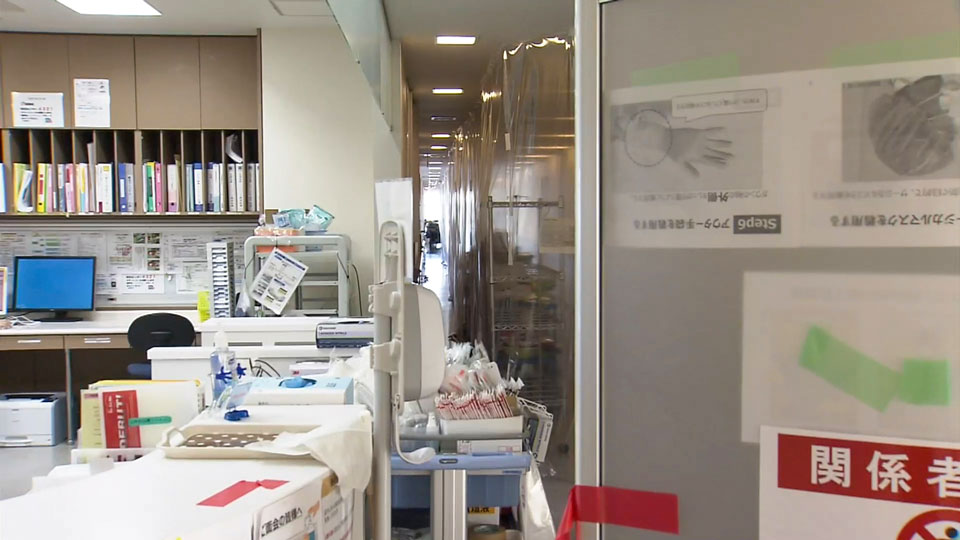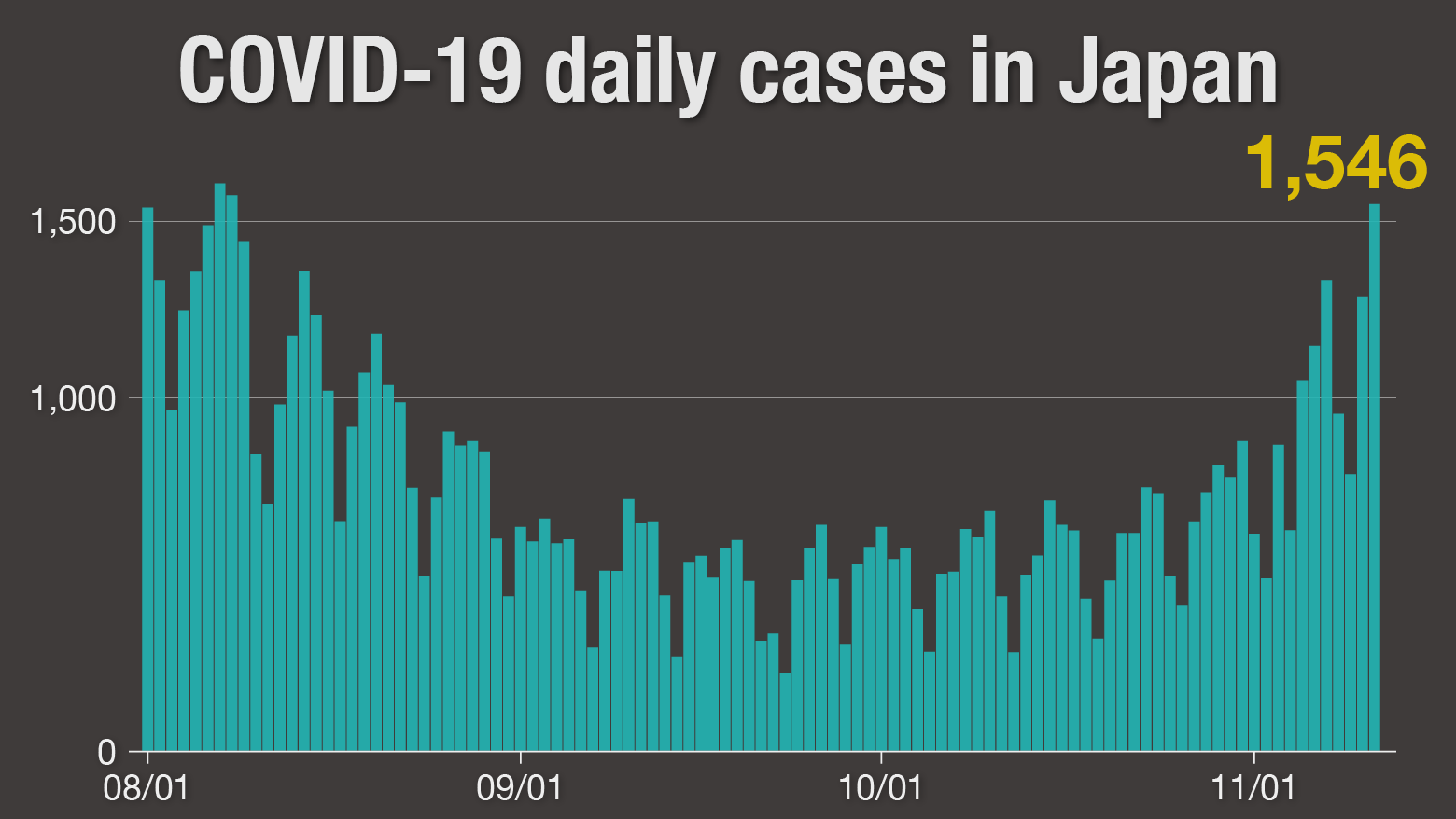Tokyo reported 317 new cases, the first time since late August that the capital's daily tally has exceeded 300. The metropolitan government says more older people have so far been infected than those in their 20s and 30s, but that new cases are now increasing across the age groups. Officials also note that more than 100 of the new infections are asymptomatic, which raises the risk of the virus spreading unnoticed. The number of people in a serious condition is now at 38, up five from the day before.
"We want all residents to act sensibly to protect elderly people and prevent people from falling seriously ill," Tokyo Governor Koike Yuriko said to reporters on Wednesday.
Elsewhere, the western prefecture of Osaka registered a record 256 new cases. And the northern prefecture of Hokkaido continues to face a surge in cases as temperatures drop; it has now recorded more than 100 infections for seven consecutive days.
In Niigata Prefecture, an outbreak has been confirmed at a police station in Minamiuonuma City. Fifteen officers have tested positive so far, and the rest of the some 80 officers are quarantining at home. The prefectural police headquarters have dispatched replacements to take over station duties in the meantime.

Nakagawa Toshio, the president of the Japan Medical Association, says the surge of cases around the country could be the start of a third wave of infection.
"There have been clear signs of a resurgence in infections since last month," he told reporters on Wednesday. "The situation in Hokkaido is particularly worrisome."
Nakagawa said a continued rise in cases would inevitably strain the nation's healthcare system, and urged the government to take steps to limit the regional spread of the virus before it is too late.
The rising number of cases is weighing on the minds of medical staff throughout the country. The Tokyo Kita Medical Center has the capacity to handle 40 coronavirus patients at a time. Currently, 18 of these beds are occupied. But this number has been creeping up since October. Just yesterday, the hospital admitted six new patients.
Miyazaki Kunihisa, a doctor at the center, says the staff has been gripped by a sense of crisis and that everyone is acutely aware of the situation in the country.
"If more patients arrive, it means we may not be able to treat people with other illnesses," he says. "We hope the number of coronavirus patients does not surge."

Dr. Morishima Tsuneo of Aichi Medical University says it is crucial for Japan to contain the spread of infections before the start of winter.
"The winter months are advantageous for viruses in general in two ways, from both the viral side and the human side," he says. "As the temperature and humidity drop, viruses tend to maintain their infectiousness in droplets. At the same time, the ability for humans to eject them through their airways is reduced."
Morishima says people need to follow basic infection-control measures, such as thoroughly washing their hands, ventilating rooms frequently, avoiding crowds and wearing masks.
At the national level, Chief Cabinet Secretary Kato Katsunobu says the government is on its highest alert following the recent spike in cases and is taking steps to curb the spread of the virus. He says the government will offer assistance to local governments as they try to limit outbreaks in their communities. This includes helping conduct large-scale testing and dispatching experts to trace cluster infections.
He adds that the government will work with experts to come up with tougher measures to reduce the incidence of cluster infections, and will continue to keep the public informed of these policies.

